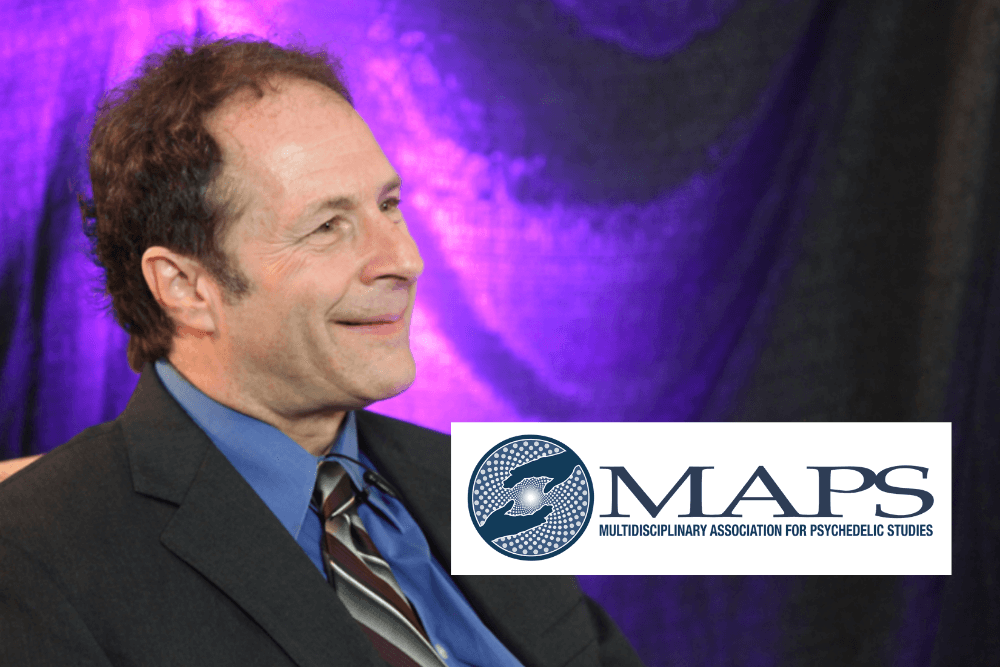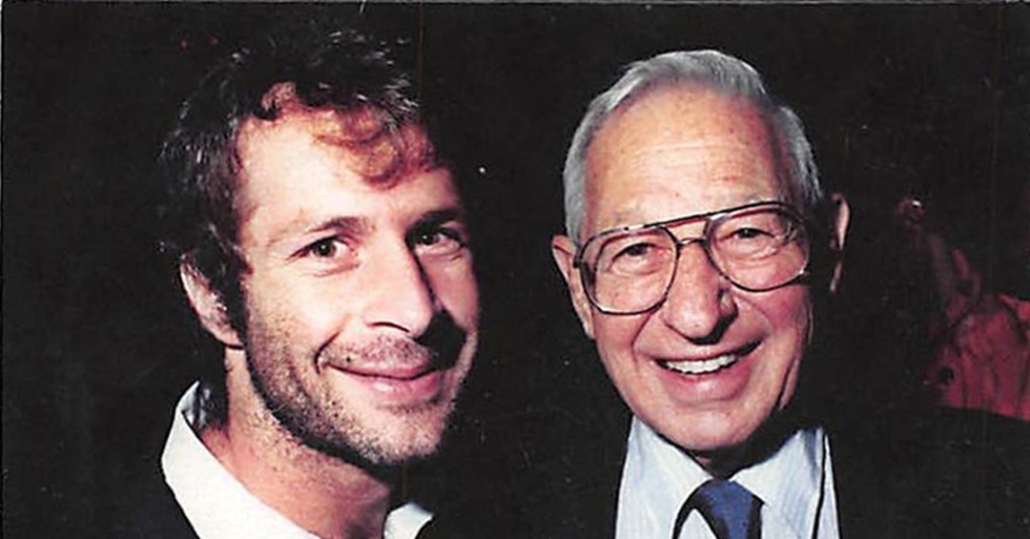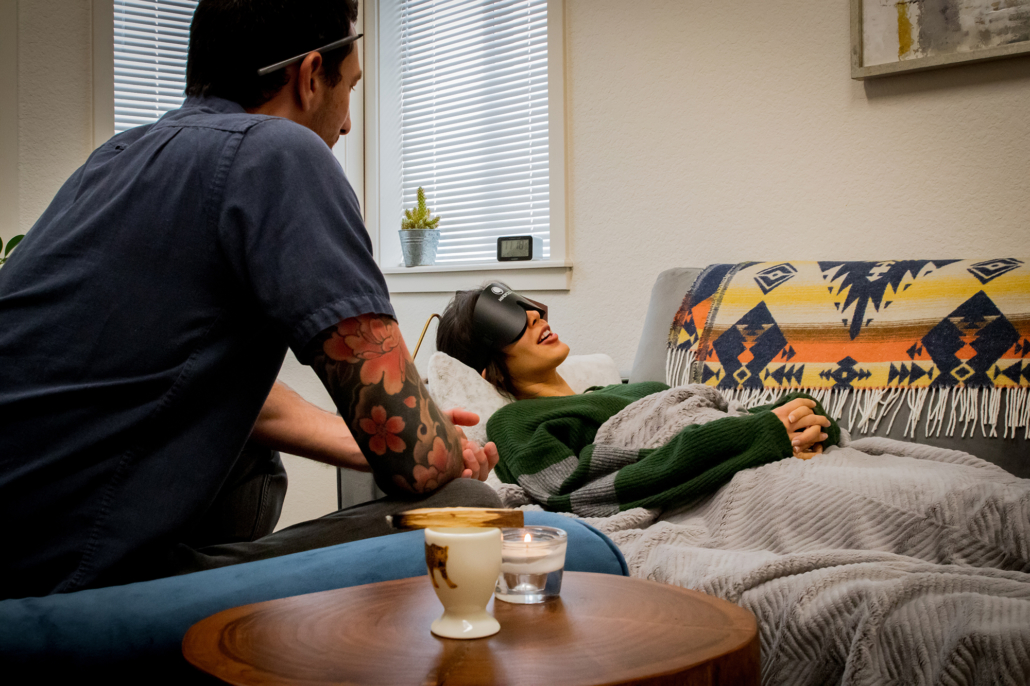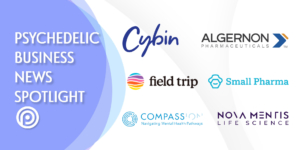
Since its founding in 1986, the Multidisciplinary Association for Psychedelic Studies, or MAPS, has worked to tear down the negative stigma placed on psychedelic medicine when the War on Drugs declared them “public enemy No. 1.”
In those 35 years, the psychedelic landscape has changed dramatically. The world is now in the midst of a psychedelic renaissance. Scientific and medical studies are showing the therapeutic promises they hold. And some countries that criminalized psychedelics in the 1970s and beyond, including the United States and Canada, are on the verge of granting federal approval for their use in treating a myriad of heath conditions.
The progress made in opening minds to and research into the power of psychedelics is due in large part to the efforts of MAPS.

Early Beginnings
MAPS calls itself a “nonprofit research and educational organization focused on developing medical, legal, and cultural contexts for people to benefit from the careful uses of psychedelics and marijuana.” And while founded in 1986, its genesis began 14 years earlier, when its founder, Rick Doblin, Ph.D., was just an 18-year-old college student.
Back then, Doblin, who would later graduate with a psychology degree, had tried LSD several times, which he described in a 2014 article in the Journal of Psychoactive Drugs, as “illuminating but difficult experiences.” This led him to understand the hallucinogen’s potential to “promote psychological health and reduce projection and denial, and to catalyze profound spiritual/mystical unitive states of consciousness that mitigated against scapegoating and dehumanization.”

In the early 1980s, he began treating a victim of a violent sexual assault who was struggling from post-traumatic stress disorder (PTSD) with MDMA, known recreationally as Ecstasy. He knew, based on previous research, that the medicine helped increase acceptance of self and others, increased tolerance of emotionally upsetting materials, and had the ability to help people address issues without extreme disorientation or ego loss. The therapy proved effective for his patient, essentially helping the woman overcome her fear, depression, and suicidality. In that moment, Doblin realized that MDMA could be a very effective treatment for PTSD.
MDMA was legal at that time but the Drug Enforcement Administration was threatening to criminalize all uses of it. When the administration finally filed a motion to do so in July 1984, Doblin and a few colleagues were prepared. Doblin traveled to the DEA headquarters in Washington, DC, and demanded a hearing so regulators could better understand the therapeutic benefits of the medicine. Ultimately, it wasn’t enough. The DEA Ended up outlawing all uses of MDMA. That’s when Doblin realized the only way to legalize the therapeutic use of MDMA was to work through the Food and Drug Administration drug development process by conducting research demonstrating that MDMA was safe and effective for specific clinical indications.
“It became evident that what needed to happen was developing a framework for people to understand psychedelics differently,” Betty Aldworth, MAPS Director of Communications and Events, told Psychedelic Spotlight. “In 1986, the War on Drugs and the fear-based mechanisms … were absolutely in control instead of what should have been a scientific discussion. But it simply wasn’t.”
Two years later, Doblin founded MAPS to prove MDMA’s worth, and the worth of other psychedelics, through scientific research.

MAPS on a Mission
In the three-and-a-half decades since MAPS was founded, the organization has focused on developing psychedelics and marijuana into prescription medicines; training therapists on psychedelic therapy and working to establish a network of treatment psychedelic centers; supporting scientific research into creativity, spirituality, and neuroscience; and educating the public honestly about the risks and benefits of psychedelics and marijuana.
“Taking a careful yet bold approach to educating people appropriately about psychedelics—the risks, their potential benefits, their possible uses in therapy and mental healthcare— really has required a great multidisciplinary approach. That includes educating decision makers, educating therapists and researchers, and a dedication to that work,” Aldworth says. “That it has taken us from 1986 where a handful of therapists and patients were legally benefitting at that time to having a third of the American public understand, finally, that psychedelics can be medicine, is a dramatic shift.”
Since its founding, MAPS has distributed more than $20 million to fund psychedelic and medical cannabis research and education efforts. These efforts include founding The Zendo Project, a psychedelic harm reduction and education program, and launching MAPS Public Benefit Corporation (MAPS PBC) to balance income from legal sales of MDMA with the social benefits of MAPS’ mission.

MAPS also established Policy & Advocacy department advocating for healing and justice, and for the decriminalization of all drugs along with comprehensive harm and risk reduction.
The organization has also supported numerous scientific research studies into psychedelics including LSD-assisted psychotherapy for anxiety, and ibogaine-assisted therapy for the treatment of drug addiction and PTSD. One of its largest efforts was supporting phase 1-3 clinical trials for MDMA-assisted therapy for PTSD.
“Just since I’ve been involved in drug policy reform since 2014, I have seen incredible difference in the psychedelics conversation globally. Not just in the U.S., but globally,” Aldworth says.

A Major Victory Ahead
Doblin founded MAPS to prove why MDMA and other psychedelics are too important and necessary to outlaw. There were many victories along the way. But the largest milestone is on the brink of becoming a reality.
In 2017, the FDA granted breakthrough therapy designation to MDMA for the treatment of PTSD based on the results of Phase 1 and 2 studies, ensuring the federal agency’s support in MAPS completing Phase 3 trials. (Before the FDA approves drugs, the agency requires they undergo an extensive three-phase clinical trial process.)
Results from the first Phase-3 study were recently published proving Doblin’s theory about the therapy right: Two-thirds of the 91 participants with severe PTSD who underwent 18 weeks of psychotherapy with once-monthly MDMA-assisted therapy sessions experienced so much improvement in symptoms two months after treatment they no longer met the criteria for PTSD. Provided the second Phase-3 study proves just as effective, Doblin’s dream of legalizing MDMA for therapeutic benefit should be granted by the FDA within the next two years.
“In 2000 we started clinical trials in MDMA and next year I would ‘t be surprised if there are a good handful in Phase 3 studies [on psychedelics] nearing the point of seeking approval,” Aldworth says. “And the notion that that could happen over the course of 22 years, that sea change is really dramatic.”





